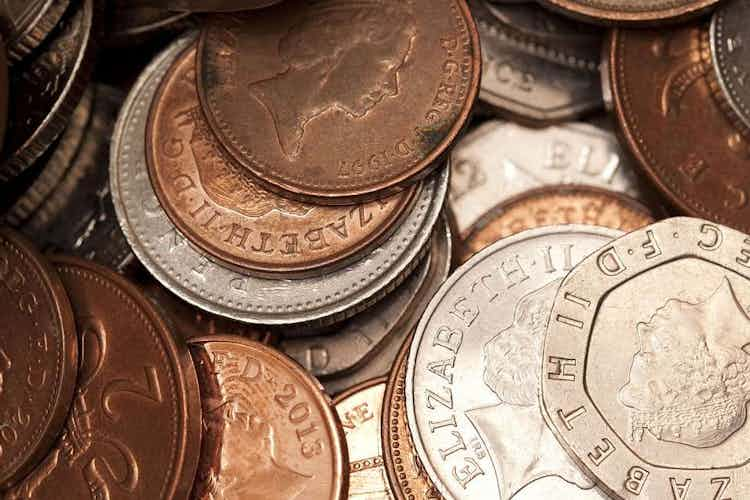The Covid-19 crisis and subsequent lockdown restrictions have played havoc with so many aspects of our lives and wider society. Despite a generous furlough scheme, job losses are at their highest levels for years and look set to increase further. Large parts of our economy have been forced to shut down for weeks and months at a time. When they have managed to reopen, it has only been for a short while before a second and third wave of infections forced them to close again.
There have been some beneficial side effects, however. Families enjoying more time together. People getting fitter as exercise was the only allowed form of activity. And, it would appear, a large portion of the UK population becoming accidental savers. Here, we look at what exactly that is and why it could be important for our wider community.
Discover stocks and shares ISAs from the UKs leading providers. Click on your chosen provider to get started!
What is an accidental saver?
In short, an accidental saver is a person who has built up money in a bank account without proactively trying to save. It has happened to an estimated six million people in the UK. Those six million people will primarily be those who have managed to keep their job during the pandemic.
Meanwhile, they have seen other outgoings decrease. Due to the lack of going out, no holidays, and lower travel expenses, many individuals have managed to bolster their financial position. They are in direct opposition to many who have found the financial impact of Covid-19 restrictions hard. Accidental savers have benefited from a lack of opportunity to spend their hard-earned cash, so they have had to save instead.
What can an accidental saver do with any savings?
The important thing with any cash balance that is above what you need for your monthly outgoings, is to squirrel it away somewhere. Doing so will ensure that it works for you. Accidental savers should ensure they invest or save their money in an account that will give them a return better than inflation. If they don’t, they will find their money’s value has decreased in real terms.
So what can you do if you find that you are an accidental saver do with an unplanned nest egg? There are a number of highly recommended options you could take.
Firstly, you could put it all away into your pension scheme. Doing so will help to bolster any pension savings in the future and benefit from the cumulatively higher returns come retirement day.
Secondly, you could choose a savings account with an interest rate and maturity date that works for them. Savings account don’t have the highest interest rates at the moment.
However, the longer you can afford to lock your money away, the higher the rate you should get.
Or, you could choose to invest your money to seek returns on the stock exchange or the asset class you invested in.
Finally, you could choose to pay off any mortgage you have or any other debts. Paying off a mortgage early can sometimes incur repayment charges. That being said, many providers allow you to repay a certain amount for free each year.
Or, you could throw caution to the wind and put your newly amassed money towards a holiday as you haven’t been away since March 2020.
Either way, it is actually important that you do not leave it languishing in a current account for too long. Doing so will simply allow inflation to eat away at it, reducing any benefits that you could receive from your savings.
What does this mean for the economy?
Over nine million people have had to borrow money to see themselves through the blight of the lockdown. Plus, the UK has had to borrow a huge amount of money since March 2020 to cover the furlough scheme’s costs, amongst many other Covid-19 support policies. So the fact that six million people have managed to save money will be hugely helpful to the economy in some way. It will at least give Rishi Sunak some hope that cogs in the UK economy will keep turning, for it is estimated that £150billion was put aside in extra savings last year.
Interestingly, though, accidental savers have thus far been reticent to put their money into longer term action plans. The majority of what has been saved has mostly been kept in current accounts and short term savings products. The implication of this is that that cash cushion will likely be spent when lockdown restrictions are eased and then lifted.
Yet, it remains to be seen if some of the structural shifts the economy has been placed under will encourage more saving. One of the reasons accidental savers have been able to save is due to reduced travel costs. By working from home, workers have managed to put aside the cash they would have spent commuting. With many companies looking to maintain at least a partial working from home set up, those savings look set to continue.
However, it would be beneficial for the government and companies to educate those with new found savings. It is understandably tempting to spend a lot of those savings on more frivolous parts of life after a year with Covid-19 restrictions. Yet, they could make a big difference to people’s pension pots. Many individuals do not have pension plans in place that will manage to keep them in the lifestyle to which they aspire. Putting aside more, and sooner, for retirement is vital to plug any widening gaps in pension savings.
Key takeaways for accidental savers
Overall, it is important for accidental savers to make a decision as to what to do with that money - even if it is to spank the lot! While no financial advisor would recommend this, at least inflation will not have time to eat away at its real value. The worst thing that could be done in real terms is to leave a sizeable amount of money in a current account earning no interest. If you find yourself in this position, research savings accounts, ISAs and investments to see what could work best for you. Do so with your own specific circumstances in mind to ensure you get as much bang for your buck as possible.







